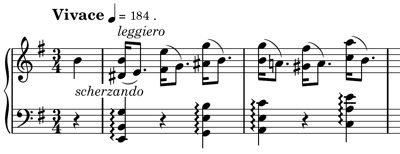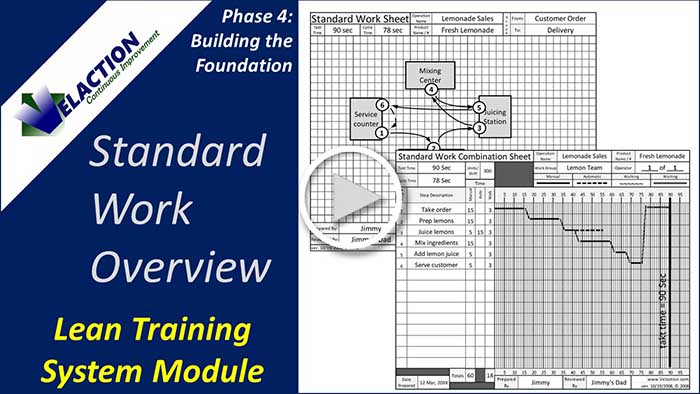> Continuous Improvement Articles
The Symphony of Standard Work
I heard an interesting comment about Standard Work the other day. A reader asked why someone just didn’t create a Standard Work document on writing a symphony so anyone could be a composer.
It’s always hard to tell someone’s meaning on a short comment like that. It could be taken as an endorsement of the power of Standard Work, or it could be a sarcastic critique on how Standard Work removes creativity from the workplace.

Regardless of the intent, it made a light bulb go off in my head. Sheet music is, in fact, Standard Work. OK, granted, it is a bit of a stretch to apply the concept of takt time. You can’t just add musicians and rebalance the work to meet an increasing customer demand.
But most of the other components of Standard Work apply. There is a prescribed sequence of operations. Play the notes out of order, and the musical flow fails. Install parts in the wrong sequence, and chaos reigns.
There is work assigned to individual operators. The flutes get their own music. The tubas get their own music. And on an assembly line with multiple people in a work station, each will get their own Standard Work.
The timing is also important in both. Play too fast, and the music sounds bad. Work at the wrong speed and the flow of a process is all out of whack. The timing provides the harmonies in music, and enables the coordination of multiple people in a production process.
And, of course, sheet music prevents batching. You can’t ‘play ahead’ in case you have a problem later. You can’t stockpile the notes under your chair in case you run out of air in your lungs. Standard Work also dictates WIP.
Finally, think about the purpose of sheet music. It creates a consistent output regardless of who is playing. Standard Work does the same. It makes the products that come off a line identical no matter who is assigned to a work station.
So the basic premise of the comment was a bit off. Standard Work would not be the composing process itself, but rather the output of it. The composer is actually the person creating the Standard Work. Similarly, someone in a factory, whether a manager, engineer, or frontline operator, has to use their imagination to put the pieces together to create appealing melodies. So in that regard, Standard Work actually inspires creativity in the workplace.
What do you think? Am I off base? Does Standard Work actually give people more opportunities to use their brains in improving the process as I believe, or does it take away free thought by having them do work the same way every time?

6 Comments
RISA60 · January 26, 2013 at 10:34 am
Stanadrd work is the best place to start for training and building in best practice. If you dont train to a standard method then you won’t get consistent quality.
Rod
Jeff Hajek · January 28, 2013 at 7:38 am
Rod,
You are right. It is a great foundation. The challenge, though, lies in getting people to accept it and practice it.
Thanks for the comment,
Jeff
Brian Buck · November 11, 2010 at 10:37 am
Great post!
Jeff Hajek · November 11, 2010 at 2:20 pm
Brian,
Thanks! I like writing these types of articles. Hope all is well with you.
Jeff
Joseph T. Dager · November 11, 2010 at 9:42 am
No, you are not off base. Even most creative people go about their work with a plan and that is all standard work is. A plan on how you do your work.
More importantly, it allows you to change the lyrics and adjust it for better melody! Great analogy!
Jeff Hajek · November 11, 2010 at 2:24 pm
Joseph,
Spot on with the last comment. I started to go down that path, but the article was getting a little long. One of the great things about Standard Work is that it provides a stable platform for improvement. Plus it conserves resources. You don’t have to spend time chasing down avoidable problems.
Thanks for commenting, and thanks for bringing up the point about improving.
Jeff